As summer transitioned to fall not long ago, it was time for our annual adventure in the BWCA. (For those farther afield, Minnesota’s Boundary Waters Canoe Area is over a million acres of waterways and forest on the Canadian border, virtually as it was when the glaciers retreated 10,000 years ago.) I’ve been fortunate to make the BWCA trek almost every year for nearly 30 years with the same men. This year I wanted to view the experience through the lens that I often adopt for sailing adventures: what leadership and teamwork lessons are there to be learned? Here are a few:
- “An adventure is an inconvenience rightly understood; an inconvenience is an adventure wrongly understood.” (Gilbert K. Chesterton) We have two ways of looking at most uncomfortable situations: an inconvenience to merely tolerate, or an adventure to make the best of – whether a rain storm in the BWCA or a momentary setback at work. Are we making the most of our challenges – to learn and build our capabilities?
- “Failing to plan is planning to fail.” (General Dwight Eisenhower) The odds of a rewarding and safe BWCA adventure are much higher with careful planning, including permits to gather, routes to plan, provisions needed and what to pack. Likewise, the chances of succeeding competitively are higher with careful planning. Reality intervenes, however; just as we needed to alter our BWCA plans because of fires in the area, strategic and operating plans need to accommodate shifting realities. Since all members of our party were involved formulating plans and contingency plans, execution went smoothly; plan ownership pays dividends elsewhere too. Are we failing to plan, or failing to build ownership for plans, and therefore planning to fail? Are we sufficiently flexible in order to adapt plans as needed?
- Be aware of your surroundings. Like sailing, wilderness camping sharpens the senses. Perhaps that’s because there can be real consequences for not paying attention – from drifting into dangerous rocky rapids (see “Distractions”
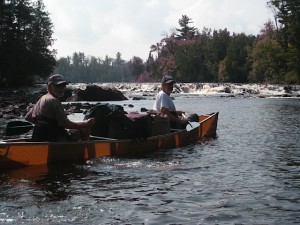 newsletter) to the discomfort of locating one’s tent directly over a sharp rock. Organizations that don’t practice careful awareness of potential opportunities or threats – external or internal – will also likely find themselves “down a creek without a paddle” or in uncomfortable situations. Are we practicing situational awareness, and does our organization have mechanisms for staying on top of potential threats and opportunities?
newsletter) to the discomfort of locating one’s tent directly over a sharp rock. Organizations that don’t practice careful awareness of potential opportunities or threats – external or internal – will also likely find themselves “down a creek without a paddle” or in uncomfortable situations. Are we practicing situational awareness, and does our organization have mechanisms for staying on top of potential threats and opportunities? - “The map is not the territory.” Actual portages look different than they do on paper; in fact to me after a while they all look pretty much the same. Likewise, a camp site that looks great on a map – perhaps on an island or facing the sunset – could actually be very unwelcoming – wind-swept and / or devoid of fire wood. Life and work are messy, and don’t neatly fit elaborate theories or models. Are we carrying around limited or outdated models or theories that limit our possibilities?
- Experience and local knowledge count. Partly because “the map is not the territory,” it helps to travel with others who know the way – or where the fish are, or which campsite is best. Our group has no designated leaders; or rather, leadership shifts depending on what’s needed. We’re all experienced by this time in the BWCA, but some have a particular knack for navigation, “creative cookery,” finding Walleyes or splitting wood. Are we sufficiently tapping the experience and unique capabilities of our team mates? Are we shifting leadership roles depending on who is best qualified to lead when?
- There are always new things to learn. Most of us were already fairly accomplished campers when we started annual treks way back. What’s great is observing how much we’ve learned from each other since then – better ways to pack, fish, cook or whatever. Of course that means we have to set our egos aside occasionally – enough to recognize that the ways we’ve always done things aren’t necessarily always the best ways. Claude Bernard was right: “It is what we already know that prevents us from learning.” Does what we or our teams already know get in the way of our learning and growth?
- Humor helps. It’s amazing how a little humor and well-intentioned kidding can make even setting a tarp up in a downpour or a “fishless,” damp cold morning
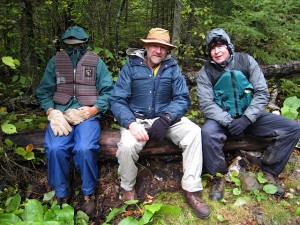 more enjoyable. Are we taking ourselves too seriously? Do we lighten team mates’ loads occasionally by putting smiles on their faces?
more enjoyable. Are we taking ourselves too seriously? Do we lighten team mates’ loads occasionally by putting smiles on their faces? - Responsibility and good stewardship are much of what the BWCA is about. That the BWCA exists today is due largely to the stewardship of conservationists like Ernest Oberholtzer and Sigurd Olson. Preserving it for the benefit of future campers and generations requires faithfulness to Park regulations and to the spirit of those regulations – disciplines that at times seem in short supply reading headlines today. Are we good stewards of our resources? Do we engage in “upstream” and “downstream” thinking – conscious of material sources and the impact of our actions?
- To paraphrase Jim Collins, perhaps it’s most important to “Get the right people in the canoe.” An experience with the right people, even if hard, cold or uncomfortable in other ways, is vastly more enjoyable and rewarding than one with the wrong people under the best of circumstances. Life is too short to spend it with undesirable characters or with others who don’t share our values and goals. Are we traveling with others who add to the experience and who share our values and goals? How can we spend more time with those kind of people?
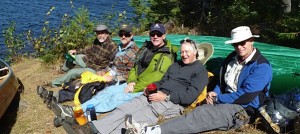 Perhaps the most important lesson from wilderness camping or sailing is the value of taking time for an adventure and away from our usual routine. Not long after returning from our BWCA trek I participated in the launch of Kevin Cashman’s new book The Pause Principle. It’s a wonderful reminder of the power that pausing has for renewal, creativity and growth; as Kevin puts it: “Paradoxically, pause powers purposeful performance.” I hope that you are able to pause from your routine for an adventure soon.
Perhaps the most important lesson from wilderness camping or sailing is the value of taking time for an adventure and away from our usual routine. Not long after returning from our BWCA trek I participated in the launch of Kevin Cashman’s new book The Pause Principle. It’s a wonderful reminder of the power that pausing has for renewal, creativity and growth; as Kevin puts it: “Paradoxically, pause powers purposeful performance.” I hope that you are able to pause from your routine for an adventure soon.
One of our camping party was Steve Wilbers, a good friend, talented writer and exceptional writing coach. We were celebrating the release of his latest book: Canoeing The Boundarywaters Wilderness: A Sawbill Log; I highly recommend it!
The distinguishing mark of a true adventure is that it is often not fun at all while it is happening.
Kim Stanley Robinson
One doesn’t discover new lands without consenting to lose sight of the shore for a very long time.
Andre Gide
It is good to have an end to journey for, but it is the journey that matters in the end.
Ursula K. Le Guin

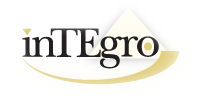




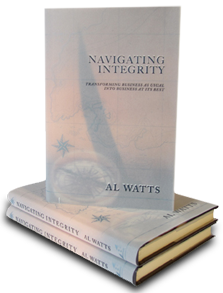
Al, another interesting and insightful post. Thank you for sharing your adventure-turned-leadership-lessons Boundary Waters trip with the world. So true, that humor, a learning-hungry mind, awareness of surroundings and planning are some of the crucial ingredients of a successful adventure and successful leadership. Regarding awareness of your surroundings, look at the following video of my colleague and friend Anthony Verderame – it ties right into your premise: HOW AWARE ARE YOU? : http://www.wholelifehypnosis.com/how-aware-are-you/
Thanks, Carolien, and thanks for the HOW AWARE ARE YOU? link – fascinating! “Change blindness” in the video’s experiment is no doubt a large part of what erodes our awareness of changing competitiveness and market dynamics. Authenticity is about being real. Traditionally that means being who we are, or true to our values and aims; another important dimension for leaders that I discuss in “Navigating Integrity . . .” is the capacity to see and articulate reality.
Al,
This looks like such an amazing trip. Dig the photos! And you always make such helpful connections.
Rock On.
Thanks, Cathy! And you “rock, paper, star” on!